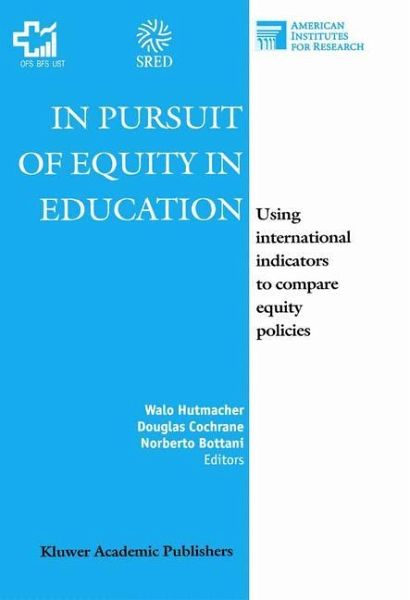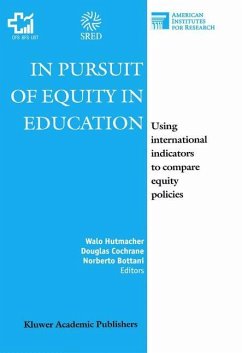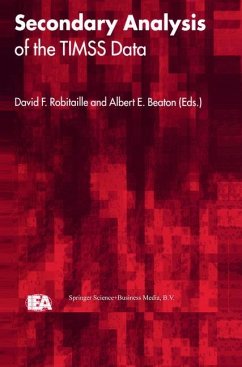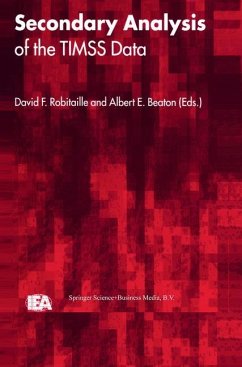
In Pursuit of Equity in Education
Using International Indicators to Compare Equity Policies
Herausgegeben: Hutmacher, W.; Cochrane, D.; Bottani, N.
Versandkostenfrei!
Versandfertig in 1-2 Wochen
138,99 €
inkl. MwSt.

PAYBACK Punkte
69 °P sammeln!
Equity in education is a major policy concern everywhere. But there are significant differences among nations with respect to definitions and issues of equality and equity. While international comparison could help countries learn from each other, reliable tools for comparison are scarce. In this book an interdisciplinary and international group of scholars makes a compelling case for better international equity indicators in education. A conceptual framework for a system of comparable indicators is proposed and a spectrum of findings and perspectives presented. This opens a dialogue on the de...
Equity in education is a major policy concern everywhere. But there are significant differences among nations with respect to definitions and issues of equality and equity. While international comparison could help countries learn from each other, reliable tools for comparison are scarce.
In this book an interdisciplinary and international group of scholars makes a compelling case for better international equity indicators in education. A conceptual framework for a system of comparable indicators is proposed and a spectrum of findings and perspectives presented. This opens a dialogue on the definition, value and use of equity indicators across nations and over time. Topics include: the sociology of equality and equity in education; the application of theories of justice to educational equity; the trade-off between effectiveness and equity; heterogeneous versus homogeneous classrooms; the influence of parental education; and the economics and demographics of metropolitan communities.
In this book an interdisciplinary and international group of scholars makes a compelling case for better international equity indicators in education. A conceptual framework for a system of comparable indicators is proposed and a spectrum of findings and perspectives presented. This opens a dialogue on the definition, value and use of equity indicators across nations and over time. Topics include: the sociology of equality and equity in education; the application of theories of justice to educational equity; the trade-off between effectiveness and equity; heterogeneous versus homogeneous classrooms; the influence of parental education; and the economics and demographics of metropolitan communities.














